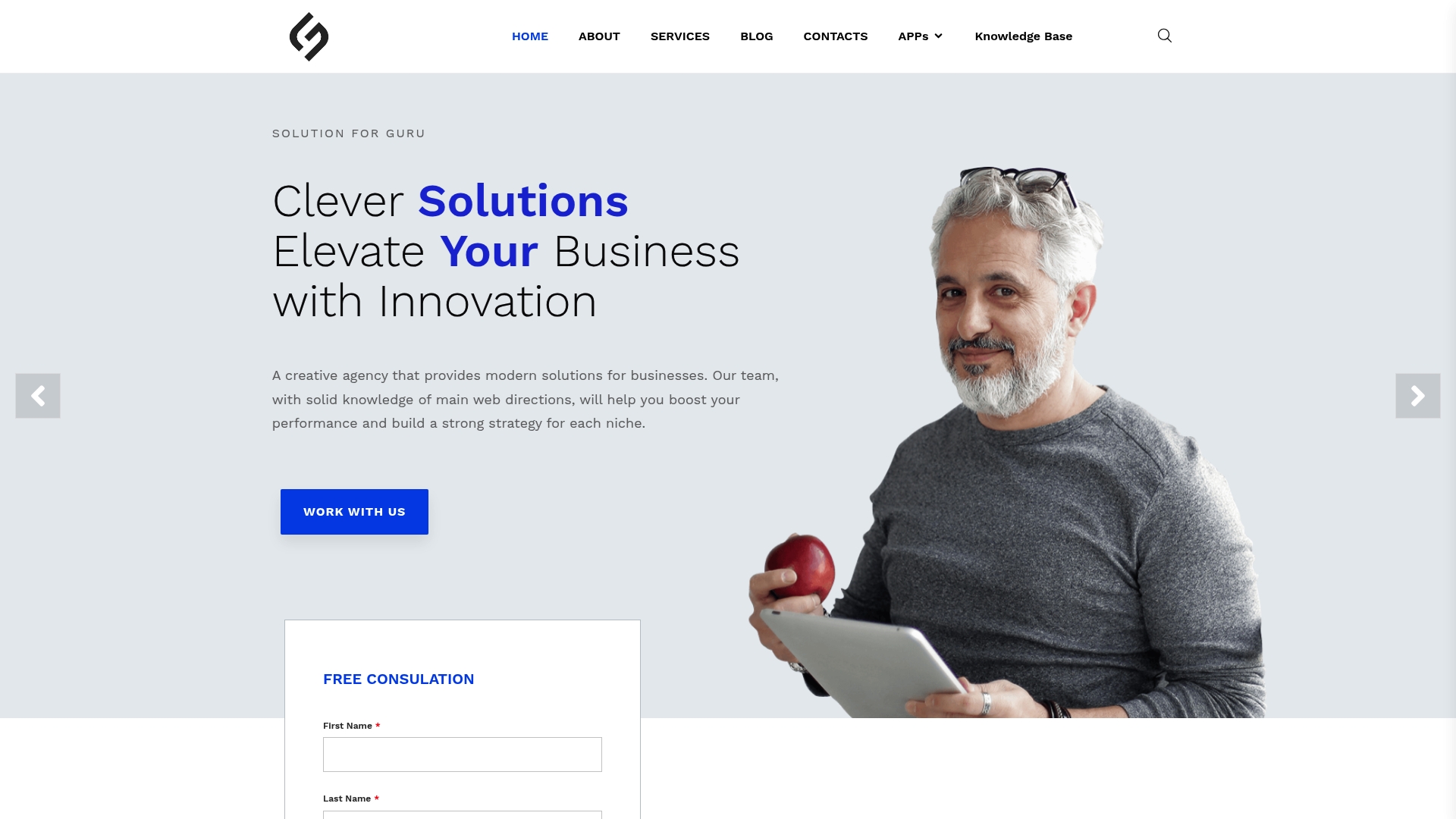Understanding the Role of Data in Marketing Strategies

Marketing is no longer about gut feelings or guesswork. Data has taken over and turned marketing into a field powered by precision. Here is something wild: data-driven companies are 23 times more likely to acquire customers and 6 times more likely to keep them compared to their competition. That might sound high-tech or out of reach, but the real surprise is how simple facts and patterns—like what people click or buy—now shape every smart marketing move.
Table of Contents
- What Is Data In Marketing? Definition And Key Concepts
- Why The Role Of Data In Marketing Matters For Businesses
- How Data Drives Marketing Decisions And Strategies
- Key Types Of Data In Marketing And Their Uses
- Real-World Examples Of Data Transforming Marketing Efforts
Quick Summary
| Takeaway | Explanation |
|---|---|
| Data enhances targeting effectiveness | Understanding customer demographics and behaviors helps create more effective, targeted marketing strategies. |
| Multiple data collection methods are vital | Utilize digital tracking, customer inputs, and third-party data for comprehensive consumer insights. |
| Data-driven decisions improve ROI | Companies leveraging advanced analytics report a 15-20% increase in marketing ROI through informed strategies. |
| Personalization increases customer engagement | Hyper-personalized marketing experiences based on data lead to improved customer satisfaction and retention. |
| Strategic integration of data types is essential | Combining first-party, second-party, and third-party data creates a complete view of consumer behavior, enabling effective targeting. |
What is Data in Marketing? Definition and Key Concepts
Data in marketing represents the foundational information businesses collect, analyze, and leverage to understand customer behavior, optimize strategies, and drive targeted engagement. Research from MIT Sloan Management Review suggests that data has transformed marketing from an intuitive practice to a precision-driven discipline.
Defining Marketing Data
Marketing data encompasses a wide range of information collected from various sources, including:
- Customer Demographics: Age, location, income level, occupation
- Behavioral Data: Website interactions, purchase history, engagement metrics
- Digital Touchpoints: Social media interactions, email responses, ad clicks
Understanding these data types enables marketers to create more targeted digital marketing strategies that resonate with specific audience segments.
Types of Marketing Data Collection
Data collection methods have evolved significantly with technological advancements. Modern marketing relies on multiple approaches to gather comprehensive insights:
- Digital Tracking: Web analytics, cookies, pixel tracking
- Direct Customer Inputs: Surveys, registration forms, feedback
- Third-Party Data Providers: External databases and aggregated consumer information
By integrating these diverse data sources, businesses can develop nuanced understanding of consumer preferences and market trends.
Here is a feature table summarizing the main methods of marketing data collection described in the article, highlighting their sources and unique advantages to demonstrate how each contributes to comprehensive consumer insights.
| Data Collection Method | Source | Unique Advantage |
|---|---|---|
| Digital Tracking | Web analytics, cookies, pixels | Captures real-time, behavioral user data |
| Direct Customer Inputs | Surveys, forms, feedback | Collects explicit preferences and opinions |
| Third-Party Data Providers | External databases, aggregators | Offers broad consumer trends and benchmarks |
Why the Role of Data in Marketing Matters for Businesses
Data has become the critical engine driving modern business strategies, transforming how companies understand, engage, and convert potential customers. Research from McKinsey Global Institute indicates that data-driven organizations are 23 times more likely to acquire customers and 6 times more likely to retain them compared to non-data-focused competitors.
Strategic Decision Making and Customer Insights
Marketing data provides unprecedented visibility into customer behaviors, preferences, and potential future actions. By analyzing complex datasets, businesses can:
- Predict Consumer Trends: Anticipate market shifts before they occur
- Personalize Marketing Efforts: Create targeted campaigns with higher conversion potential
- Optimize Resource Allocation: Direct marketing budgets toward most effective channels
These insights enable companies to develop comprehensive CRM strategies that transform raw information into actionable business intelligence.
Competitive Advantage and Performance Measurement
Data-driven marketing provides businesses with measurable competitive advantages. Companies can track key performance indicators (KPIs) in real-time, allowing for rapid strategy adjustments. According to Harvard Business Review, organizations utilizing advanced analytics can improve their marketing ROI by up to 15-20%, creating significant economic value through precise, informed decision-making.
How Data Drives Marketing Decisions and Strategies
Data has transformed marketing from a traditional guesswork approach to a precise, scientifically driven discipline. Research from MIT Technology Review reveals that companies utilizing advanced data analytics experience 2.5 times higher revenue growth compared to their less data-sophisticated counterparts.
Data Interpretation and Strategic Insights
Marketers leverage data to make informed decisions across multiple strategic dimensions. By analyzing intricate datasets, businesses can uncover critical insights about consumer behavior, market trends, and potential opportunities. Key strategic applications include:
- Consumer Segmentation: Divide audiences into precise demographic and psychographic groups
- Predictive Modeling: Forecast future consumer behaviors and market trends
- Performance Optimization: Continuously refine marketing approaches based on real-time feedback
These sophisticated analytical techniques enable businesses to develop targeted email marketing strategies that maximize engagement and conversion rates.
Technological Foundations of Data-Driven Marketing
Modern marketing relies on advanced technological infrastructure to process and interpret vast amounts of information. Machine learning algorithms, artificial intelligence, and sophisticated analytics platforms transform raw data into actionable strategic insights. According to Gartner Research, companies that successfully integrate these technologies can reduce marketing costs by up to 30% while significantly improving campaign effectiveness.
Key Types of Data in Marketing and Their Uses
Marketing data represents a complex ecosystem of information sources that enable businesses to understand, target, and engage with their audiences more effectively. Research from Forrester Analytics reveals that organizations leveraging multiple data types can improve marketing performance by up to 45%.
Primary Categories of Marketing Data
Marketers typically work with three fundamental data types, each offering unique insights and strategic value:

- First-Party Data: Information collected directly from customer interactions
- Second-Party Data: Shared data from strategic partner organizations
- Third-Party Data: Aggregated information purchased from external data providers
Understanding these categories allows businesses to design more effective email marketing campaigns that resonate with specific audience segments.
Below is a comparison table that outlines the three primary categories of marketing data discussed in the article and summarizes their sources, strengths, and strategic uses to help readers quickly distinguish each type.
| Data Type | Source | Key Strength | Common Strategic Uses |
|---|---|---|---|
| First-Party Data | Direct interactions (website, CRM, apps) | Most accurate, directly from customers | Personalized marketing, direct engagement |
| Second-Party Data | Strategic partners | Expanded audience insights, trusted | Broader targeting, enhanced segmentation |
| Third-Party Data | External providers, aggregated sources | Wide reach, extensive market perspective | Audience expansion, market analysis |

Data Application and Strategic Implications
Each data type serves specific strategic purposes in the marketing ecosystem. First-party data provides the most accurate and reliable customer insights, derived directly from owned channels like websites, mobile apps, and customer relationship management (CRM) systems. Second-party data offers expanded audience perspectives through carefully vetted partnerships, while third-party data enables broader market understanding and potential audience expansion. According to Harvard Business Review, successful companies integrate these data types strategically, creating a comprehensive view of consumer behavior and market dynamics that drives more precise targeting and personalization efforts.
Real-World Examples of Data Transforming Marketing Efforts
Data has revolutionized marketing strategies across industries, enabling businesses to make precise, informed decisions that dramatically improve customer engagement and revenue generation. Research from McKinsey Global Institute demonstrates that data-driven companies are 23 times more likely to acquire customers and 6 times more likely to retain them.
Personalization and Customer Experience
Leading companies leverage data to create hyper-personalized marketing experiences that resonate deeply with individual consumers. Key transformation strategies include:
- Predictive Recommendation Engines: Anticipating customer preferences
- Dynamic Content Customization: Tailoring messaging in real-time
- Behavioral Targeting: Matching marketing efforts to specific user interactions
These sophisticated approaches allow businesses to optimize their email marketing strategies with unprecedented precision and effectiveness.
Industry-Specific Data Applications
Companies across sectors are reimagining marketing through strategic data utilization. Netflix analyzes viewing patterns to recommend content, while Amazon uses purchase history to create personalized shopping experiences. According to Harvard Business Review, these data-powered approaches have transformed traditional marketing from broad-based campaigns to highly targeted, individualized interactions that significantly enhance customer engagement and business performance.
Transform Your Marketing With Data-Driven Digital Solutions
Are you struggling to turn valuable marketing data into real business results? The article highlights how many businesses collect information but feel overwhelmed trying to translate customer insights, analytics, and digital touchpoints into actionable strategies. If you want to move from uncertainty to confident, measurable growth, you need the right technology and expert support.

Now is the perfect time to partner with Solution4Guru.com. Our digital agency specializes in converting complex data into tailored marketing strategies that attract customers, enhance your online presence, and drive measurable revenue. Discover how our business strategy consulting and digital marketing solutions have empowered companies just like yours to thrive in today’s data-driven marketplace. Ready to gain a true competitive edge? Visit Solution4Guru.com to schedule your free consultation today.
Frequently Asked Questions
What is data in marketing and why is it important?
Data in marketing refers to the information businesses collect to understand customer behavior and optimize marketing strategies. It is important because it transforms marketing from intuitive practices to data-driven discipline, enabling businesses to make informed decisions.
What are the main types of marketing data?
The three main types of marketing data are first-party data (collected directly from customers), second-party data (shared from partners), and third-party data (purchased from external sources). Each type provides unique insights into customer behavior and market trends.
How do companies typically collect marketing data?
Companies collect marketing data through various methods, including digital tracking (like web analytics and cookies), direct customer inputs (such as surveys and feedback), and utilizing third-party data providers for aggregated consumer information.
What role does data play in personalizing marketing efforts?
Data allows businesses to create hyper-personalized marketing experiences by analyzing customer preferences and behavior. Strategies such as predictive recommendation engines and dynamic content customization help tailor messaging to individual users, enhancing engagement and conversion rates.
Recommended
- Understanding Digital Marketing Best Practices for Growth – Solution for Guru
- What is CRM in Marketing? A Comprehensive Guide – Solution for Guru
- 8 Essential Social Media Engagement Tips for Businesses – Solution for Guru
- Email Marketing Essentials: Grow Your Business with Effective Campaigns – Solution for Guru



